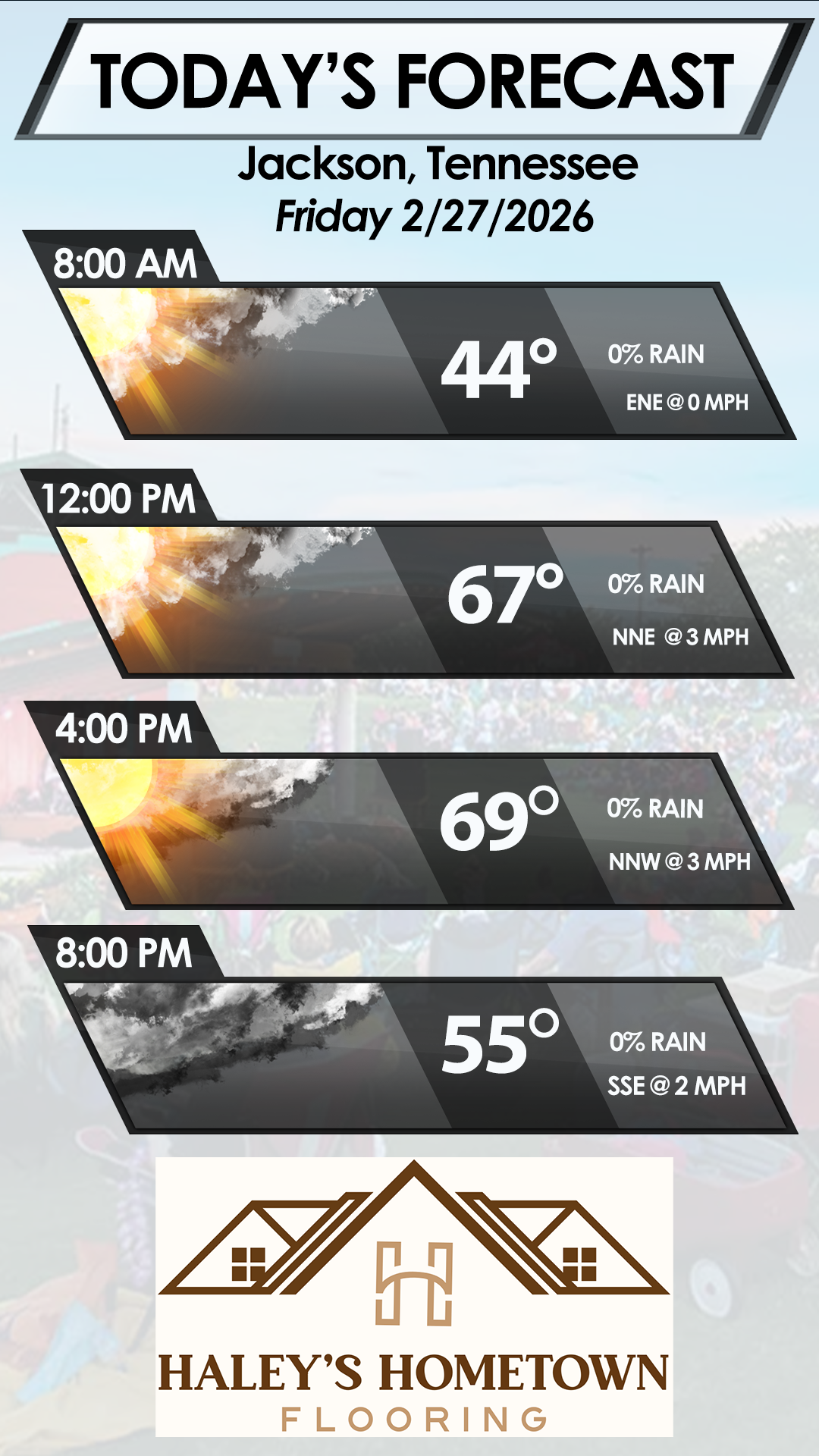Caleb Meriwether, Haven Insurance Partners, visits with Dan Reaves, host of ‘The Dan Reaves Show,’ today, and each Wednesday at 3:30 p.m., to discuss all things insurance.
Tennessee winters can be unpredictable. Some years bring mild cold snaps, and others bring extended freezes that strain plumbing systems, roofs, and heating units. As an insurance agency in West Tennessee, we see the same preventable losses happen over and over. A little preparation goes a long way—both in protecting your property and in avoiding claims that may impact your policy in the future.
Below are practical steps every homeowner should take before and during winter, followed by an explanation of how a claim affects your insurance record and premiums.
Steps to Prevent Winter Damage in Tennessee
1. Protect Your Pipes from Freezing
Frozen pipes are one of the most common winter claims in Tennessee.
Key steps:
- Insulate exposed pipes in crawlspaces, attics, and exterior walls.
- Disconnect hoses and cover outdoor spigots.
- Let indoor faucets drip during deep freezes to keep water moving.
- Keep cabinet doors open under sinks on exterior walls.
- Maintain indoor temperatures at 55 degrees or higher, even if you are away.
2. Check Your Roof Before the Weather Turns
Minor roofing issues turn into major leaks during freeze-thaw cycles.
- Replace damaged shingles.
- Clear debris from the roof and valleys.
- Evaluate for weak spots where ice can build up.
- Make sure your attic has proper ventilation to prevent condensation and ice damming.
3. Clean and Inspect Gutters
Clogged gutters force water back toward the home.
- Remove leaves and debris from gutters and downspouts.
- Make sure water drains away from the foundation.
- Consider gutter guards if you have heavy leaf fall.
4. Service Your Heating System
Heating failures during a freeze can lead to frozen pipes or smoke-related claims.
- Have an HVAC professional inspect and tune your system.
- Replace air filters.
- Test carbon monoxide and smoke detectors.
5. Prepare for Severe Weather and Power Outages
Ice storms can bring down trees, power lines, and roofs.
- Trim limbs hanging over your roof or driveway.
- Secure outdoor furniture and equipment.
- Keep flashlights and space heaters ready (if using space heaters, maintain 3 feet of clearance and never leave them unattended).
- Know where your main water shut-off valve is located in case a pipe bursts.
6. Protect Vacant or Seasonal Homes
If you travel or own a secondary home:
- Keep the heat on.
- Install smart thermostats or Wi-Fi temperature sensors.
- Have someone check the home regularly, especially after a freeze.
What Happens When You File a Homeowners Insurance Claim?
Many homeowners are surprised to learn how long a claim stays on their record or how it affects premiums, deductibles, and future coverage options. Here’s what to expect.
1. Claims Stay on Your Record for Several Years
Most carriers report claims to a national database called CLUE (Comprehensive Loss Underwriting Exchange).
- Claims typically stay on record for five to seven years.
- Even claims under your deductible or “zero-payout” claims can appear.
2. Claims May Increase Premiums
A claim doesn’t automatically guarantee a rate increase, but certain types of losses commonly cause one:
- Water damage
- Fire
- Liability claims
- Multiple claims within a three-year window
Premium impacts vary by carrier, severity, and frequency.
3. Too Many Claims Can Limit Options
A “claims-heavy” file may:
- Reduce the number of carriers willing to write or renew your policy.
- Require higher deductibles.
- Lead to surcharges or nonrenewal depending on frequency.
Carriers care about patterns. A single weather claim usually isn’t a problem. Repeated water losses or multiple small claims often are.
4. Not All Claims Are Treated Equally
Tennessee’s wind, hail, and severe weather are typically considered “catastrophic” losses.
- Catastrophe claims rarely penalize you as much as preventable claims (like plumbing leaks, theft, or roof leaks due to maintenance issues).
- Carriers may still raise rates across the region, but individual policy penalties are generally lower.
5. Filing a Claim May Trigger Inspections or Underwriting Questions
Some carriers will inspect the home or verify repairs after a significant claim.
Others may require proof you corrected any issues that contributed to the loss.
6. When to File – and When to Avoid It
You should file when:
- Damage is significant.
- Safety or habitability is impacted.
- Cost of repairs is clearly above your deductible.
You should think twice when:
- Damage is minor.
- Repairs cost near or below your deductible.
- You have multiple recent claims and want to avoid further underwriting scrutiny.
















